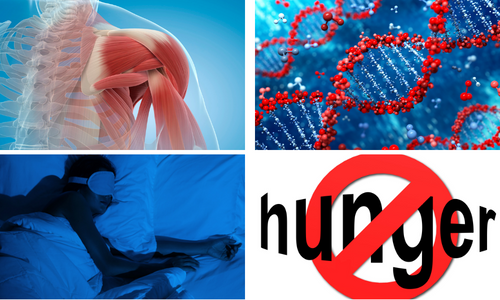Exercise: A Useful Tool For Recovery From Processed Food Addiction

Issue No. 20 | Brought to you by the Addiction Reset Community – ARC
Unlocking the secrets of processed food addiction and guiding you to find freedom from food and weight obsession.

Recovering food addicts may be pleased to know that there is a strong body of research showing that exercise can support recovery, in a variety of ways.

Here are some of the benefits of exercise as a tool in your food addiction recovery toolkit:
- Exercise can reduce cravings and hunger.
- A lack of quality sleep can be a trigger for using food to cope with tiredness. Exercise can improve sleep.
- It offers a creative alternative from the cueing of watching television or being in kitchen unnecessarily.
- Exercise is also found to reduce isolation, which another reason, food addicts may turn to food.
- Another important function of exercise is to improve cognitive functions. This makes it easier to make good decisions about abstinent foods and cue-avoidance.
- Food addicts often suffer from issues related to impaired mobility. Exercise can improve mobility as a result of improved muscle, joint, bone, heart and asthma conditions.
- A great benefit of exercise that it improves and stabilizes mood and self-esteem. This can reduce stress and eating triggered by emotions.
- Exercise also helps our body chemistry to work better. It can reduce production of consumption-stimulating peptides such as insulin.
- Significantly, exercise also favorably impacts DNA and cell function. It has been shown to repair DNA which can help overcome genetic predispositions to obesity.
- Exercise can even help repair mitochondrial function in the cell. The mitochondria produces the energy that the cell needs to function.

If you would like to take a closer look at the research that supports the benefits outlined in this article, here's a handout that references relevant scientific research.

Within the Addiction Reset Community (ARC) our members and their journeys are important to us. We find their stories inspiring and hopeful for everybody in health recovery.
"What I love is the blending and melding of compassion with science. This is what makes me comfortable enough to take action. I feel that I’m doing something that is scientifically shown to generate a result, and if I don’t make it work the first time, I’ll receive reassurance and guidance. I never receive judgement. So, it’s safe for me to try things I’ve never tried before. I’m confidently building skills as a result."

Many people reach out to Joan asking for advice and assistance on how they can begin their recovery journey.
Dear Joan
I was following a food plan which allowed for artificial sweeteners. I would make all sorts of 'legal' desserts with these sweeteners and dairy. I could not stop eating them. One serving would turn to many servings in one sitting. I would remark that they were 'too good' because I could not stop. I would constantly crave more of the dessert. Because these sweeteners were no calories, I thought they would be find to consume. Could artificial sweeteners be addictive and turn on my cravings?
Joan responds:
Sugar has been shown to be more addictive than cocaine. And, we've been using it helplessly all day since we were small children. Any concentrated sweet taste can activate addicted brain cells and drive us to intense obsession and relapse.
Research shows that processed foods are associated with mood swings. Processed foods are absorbed very quickly into the bloodstream causing glucose levels to rise quickly. This can make the addicted person feel high and even euphoric. However, the pancreas responds to bring down glucose levels by releasing insulin. Insulin can bring down sugar levels very quickly which feels like a crash. People can become very depressed and angry with the sudden drop. With the right support based on the new science of food addiction management, you can regain control of your food and eliminate mood swings.
DISCLAIMER:
Dr Joan Ifland (PhD) is a global expert on the subject of processed food addiction and is not a medical doctor. Information and response shared in this Newsletter are not intended for, and should not be construed as medical advice.

Do you have a question? Reach out to us with your questions about food addiction and recovery at gethelp@foodaddictionreset.com
Are you showing signs of Processed Food Addiction? Take this self-quiz to find out now!
Recent copies of Dr Joan Ifland's Blog:
Issue 01 | Issue 02 | Issue 03 | Issue 04 | Issue 05 | Issue 06 | Issue 07 | Issue 08 | Issue 09 | Issue 10 | Issue 11 | Issue 12 | Issue 13 | Issue 14 | Issue 15 | Issue 16 | Issue 17 | Issue 18 | Issue 19

